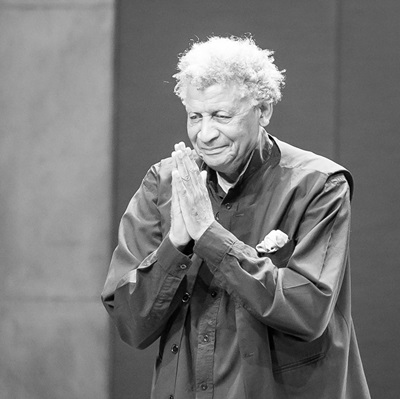.
.
photo by William Gottlieb/Library of Congress

Charlie Parker, Three Deuces, New York, N.Y., c. Aug. 1947
.
___
.
Marge
by T.S. Davis
.
…..When I met her around 1990, I was an RN working in Seattle at the University of Washington Medical Center on the Rehab Medicine Unit. She was my patient, and I’ll call her…Marge.
…..Marge was recovering from amputations related to her diabetes. But despite her medical problems, she always had a smile on her face and a kind word for everybody. I’d linger in her room just to talk to her. And we would discuss culture, and politics, and literature, all topics that she brought up. But she had a unique knowledge and appreciation for jazz.
…..I was a generation younger than her, all hip hop and rock, especially gangster and grunge and punk, and my band gigged in all the little Seattle clubs that encouraged original music instead of dinosaur covers.
…..But in our stolen moments together, Marge began to school me in the jazz classics. I quickly realized that she was different from any sixty-year-old woman I had ever met. In my head I did the math. She was born around 1930 and would have been eighteen in 1948.
…..On a hunch, one day I blurted out, “Marge, were you a beatnik?” A big smile broke her face wide open.
…..“Why yes, I was,” she said.
…..“Do you mind telling me about those days?”
…..So began Marge’s story of attending Columbia University in the late forties, living in Greenwich Village, and hanging out in Washington Square Park listening to music, until she met the man who became her husband. Marge was white and her husband was African American, a daring marriage during that time period, even in New York City. Marge explained that her husband produced records so jazz musicians could audition for club owners without a band present. For example, if you played sax, you could buy an audition record with piano, bass, and drums. You’d take it to a club and play the record for the owner while you soloed over it. Marge told me her husband introduced her to a musical underground she could have never entered on her own. They were welcome in all the New York City jazz clubs.
…..But the best story she told me was about Charlie Parker. One night she was at a club talking with three musicians, one of whom was Bird. Marge was excited just to be around him because by then he was at the top of his game. She took a cigarette from her purse and placed it in her mouth. A stranger next to her quickly struck a match and held it up for Marge. As she leaned toward the match, Bird leaned in too, and gently blew the match out. Then, with a big smile on his face, the consummate and refined gentleman, Bird struck his own match and lit Marge’s cigarette.
…..With a laugh and a twinkle in her eye, Marge told me she kept that cigarette butt for a long, long time.
.
.
___
.
.

T..S. Davis is the author of Sun + Moon Rendezvous, a book of poems, and the former producer of the Seattle Poetry Slam. He’s published poems, essays, and nonfiction in a variety of magazines including Rattle, The Lyric, Bellingham Review, 14 X 14, Blue Collar Review, Amethyst Review, Henhouse, and Your Genealogy Today, among others. Mr. Davis is a retired Registered Nurse who lives in rural Arizona and writes creative nonfiction and Shakespearean.sonnets.
.
.
.L
Listen to Charlie Parker play “Yardbird Suite” (c. 1946-47)
.
.
.
.
..











































